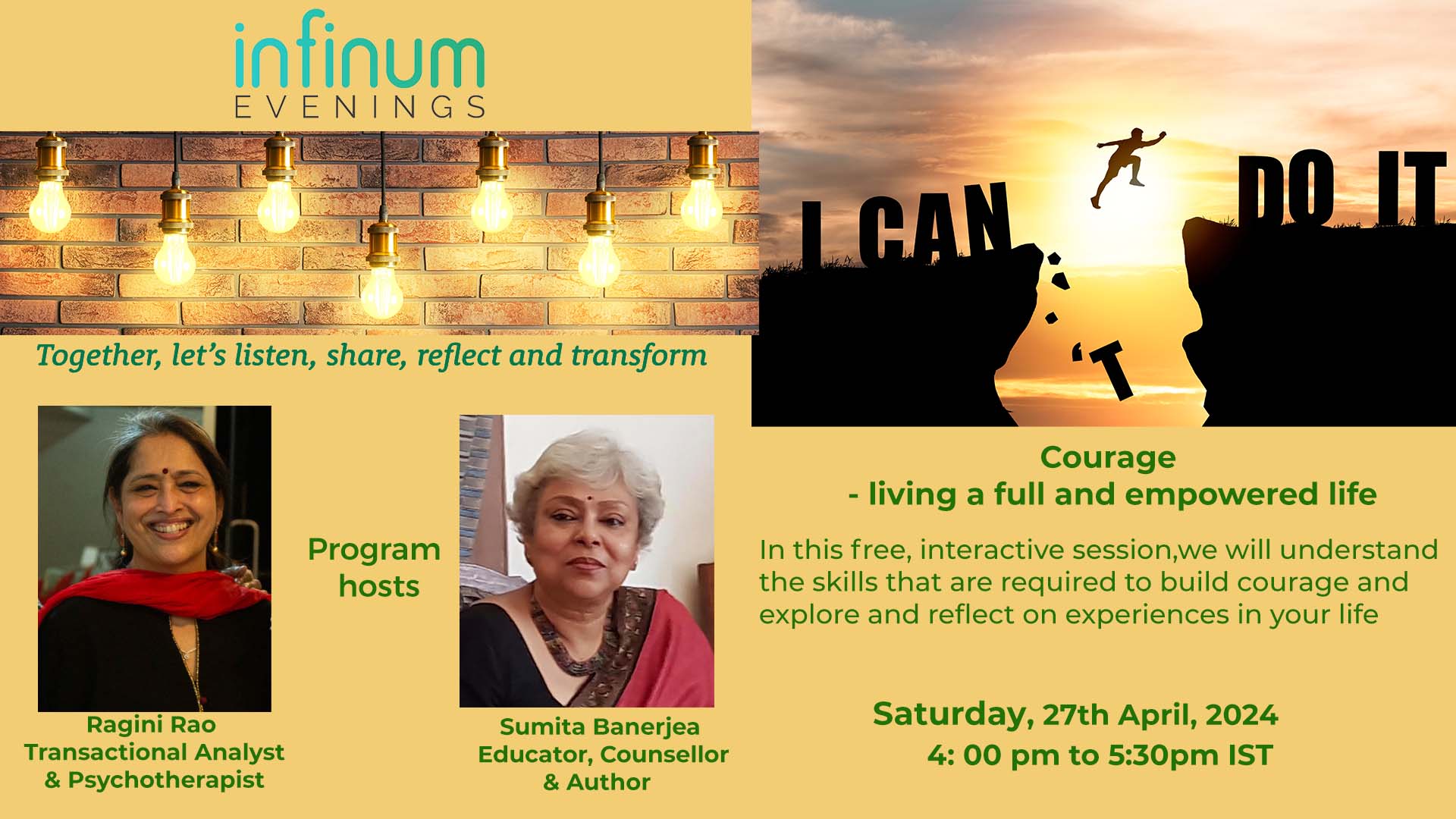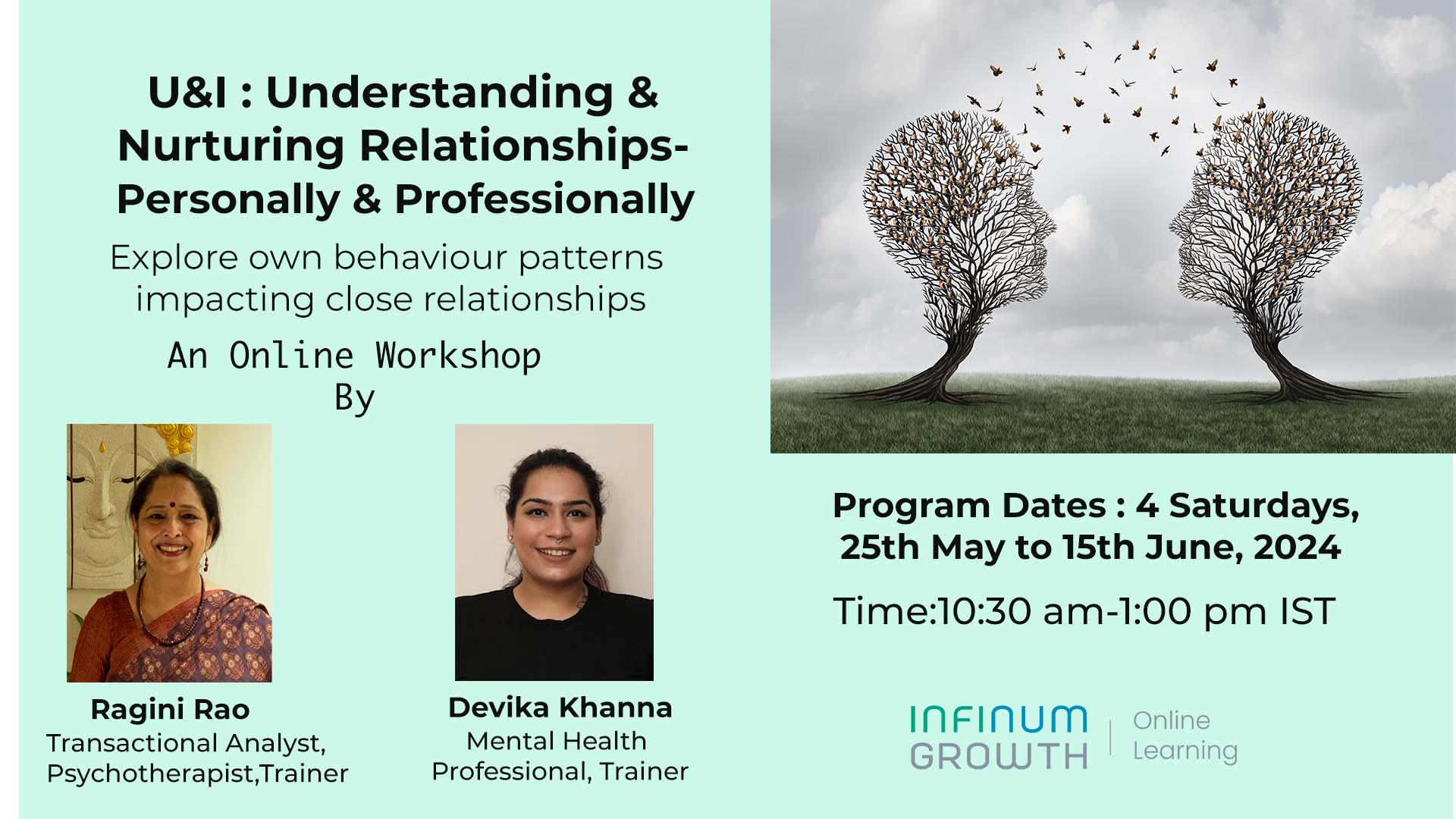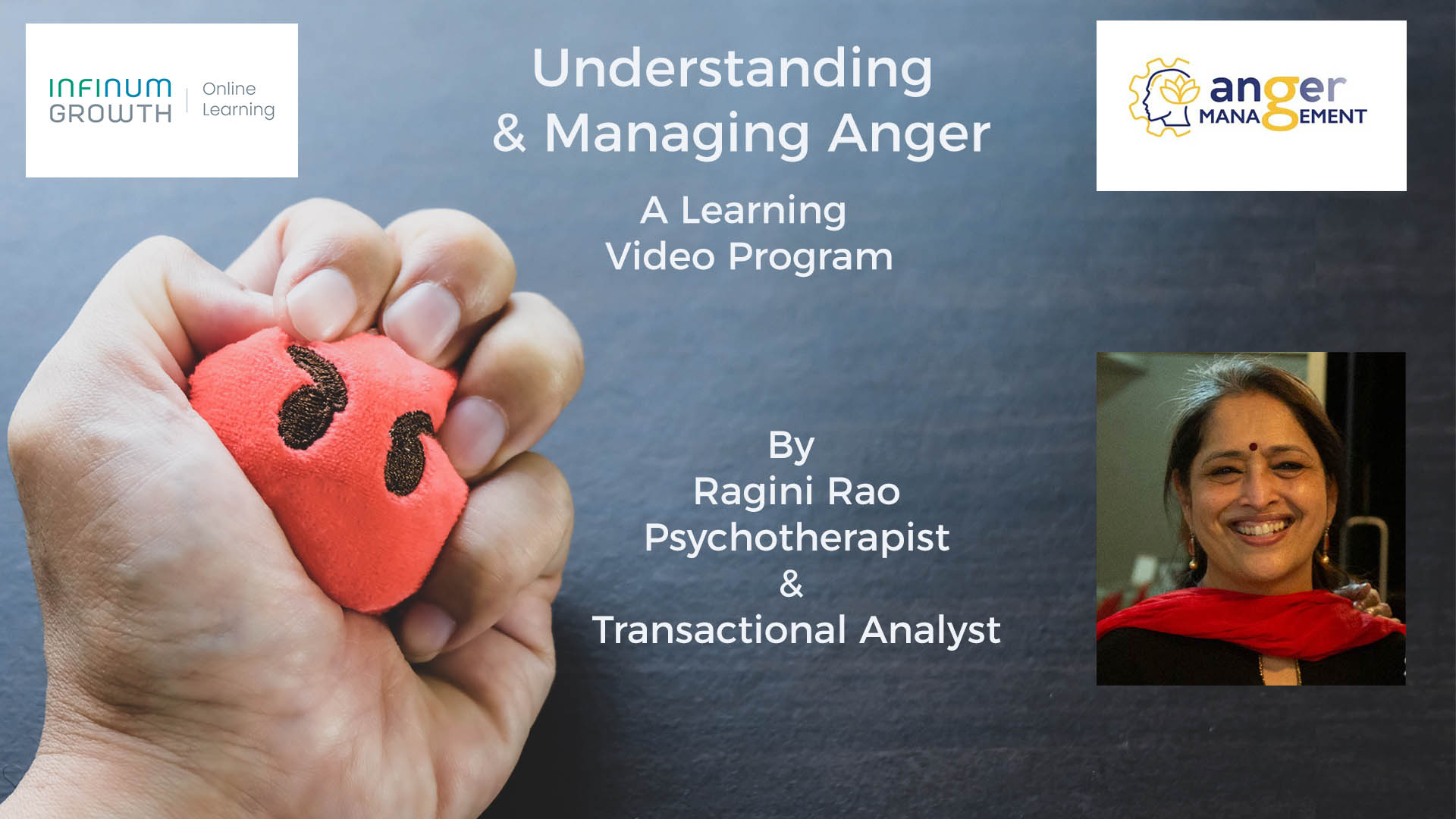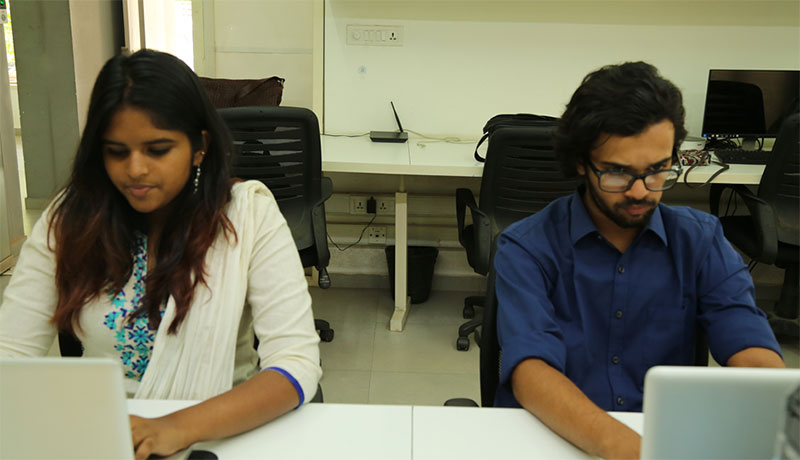“When you stop expecting people to be perfect, you can like them for who they are”. – (Donald Miller)
As adults, the single most important aspect of our lives is, building relationships; and managing them satisfactorily. While our understanding of relationships starts right from the day we are born, managing them consciously starts much later in life.
As children, we tend to go with the flow of how people around us treat us, respond to us and/or trigger in us.
Building Relationships in Childhood
As a child the basic needs are survival, love and care; and, meeting the expectations of our parents or caretakers.
There is limited reasoning and logical thinking at that time; and hence, most children follow their instinct in relating with people around them.
These then, set the pattern of our behaviors as adults too. If we have been lucky as children; to have grown up in a household where love, care and safety was the norm and focus; then, that is what we learn and expect from others as we grow up.
However, if we grew up in a household where fights, arguments and abuse were the norm; then, our beliefs about other people and relationships can be very scary and confusing, as we grow up to be adults. There is no healthy template to follow and hence chances of conflicts and misunderstandings can be very high.
Core human needs that work in building relationships
As human beings we all have the need for recognition, stimulation and structure (Berne1961).
- Recognition is the need for appreciation, praise and unconditional love from others.
- Stimulation is the need for physical touch, emotional and mental connect with the other.
- Structure is the need for predictability and stability in one’s routine, which provides safety to us.
Parents and/or caretakers, play a big role in fulfilling these needs. A good balance of these needs makes the individual feel whole and complete; with a high self-esteem and self-confidence. These needs also influence our ability of building relationships and nurturing them later in life.
Deficiency in core needs affects building relationships
However, when there is an imbalance or deficiency in these needs, the individual feels incomplete; and, consciously, as well as unconsciously, tries to seek these needs in other relationships, later in life.
We not only try to get our needs met, we also hold the same beliefs from our past in doing that.
This can often result in conflict and confusion while building relationships, as the other person has no awareness of it. This can happen both, in personal life and at workplace with colleagues, subordinates and superiors.
Sarita grew up in a family where love and affection was never overtly expressed. In fact, many times expression of love was looked at as a weakness.
As a grown up, Sarita had difficulty forming close relationships as the other persons experienced her as distant and cold. Though internally she was yearning to be close to the other people, her old beliefs stopped her from acting on what she felt.
At work, while Sarita was known to be an efficient worker and could handle difficult tasks with ease; managing relationships at work, such as, team work and dealing with sticky situations, confronting people or praising subordinates was something she struggled with.
So how can one manage and build relationships as an adult?
- The first step is to identify which of our needs have not got met. How is it still impacting us? Self-awareness about our beliefs and its impact on our thinking, feeling and behavior is very significant.
- Sometimes this could mean releasing negative feelings of shame and guilt from the past, to heal oneself.
Sarita believed that, asking for love and affection was shameful. It was a sign of weakness.Her beliefs that interfered at workplace with colleagues were- “it’s not ok to confront people; and praising people will make them arrogant.”
She needed to work through this, before she started building and managing relationships at work and in her personal life.
With this awareness, how does one take responsibility for one’s needs, instead of blaming the past or parents?
- Responsibility gives us the power to create new opportunities in life. Taking charge and making choices that are healthy and nurturing, opens up new pathways for us in building relationships.
- Start by building relationship with yourself. You did what you knew best at that time. Today you know better, you do differently.
- Practice positive affirmations. Be kind to the child within. As an adult you can provide the nurture your child did not receive earlier.
- Stop criticizing, be patient, praise yourself for small achievements, forgive your mistakes, be optimistic and love your whole self- with your strengths and weaknesses. Accept yourself fully.
- Find relationships that are nurturing and build on them. When the child within feels safe and loved, building relationships becomes easier. It becomes easier to receive love that comes one’s way.
- When you start believing in yourself you can access the power within to bring changes. Make informed choices that work for you. Choose people who are appreciative of you and help in your growth.
- Holding an attitude of respect, equality and trust in relationships is very helpful. Respectful of the others’ views, opinions, values and beliefs, even if they are not in line with yours, is important.
- Establishing personal consistency and dependability is much needed in relationships. It includes making and keeping agreements that are beneficial to both. By being dependable, consistent and reliable we establish an environment of emotional stability.
- Developing healthy communication skills of openness, authenticity and genuineness in relationships is crucial. Avoid falling into old patterns of withdrawal or blame and learn to ask and believe that one will receive it. Being curious about the way the other person thinks and behaves allows space in relationships.
- Accepting the other fully with their strengths and weaknesses. When we are able to do this for ourselves it becomes easier to accept others too. Very often others provide the mirror for our struggles. Replacing criticism with curiosity for ourselves and others is useful way to practice acceptance.
Building relationships and managing them is an ongoing process that needs a concerted effort on our part.
Self-awareness is the key, along with awareness of how one is impacting and being impacted by people in our personal lives and work places.
Ragini Rao is a Psychotherapist & Life Coach,Teaching & Supervising Transactional Analyst(TSTA) and leads the Counselling & Psychotherapy team at InfinumGrowth.
She is available for one to one sessions online for Counselling Supervision or Life Coaching as a part of the InfinumGrowth Coaching & Mentoring panel. Click to know more.
Please do leave your comments at the bottom and do share with others if you like this article.















Leave a Reply